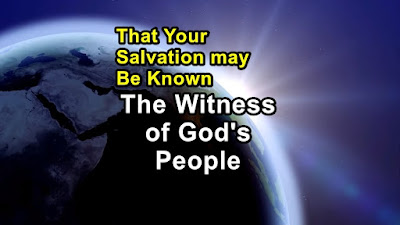"Justice, Mercy, and Worship: God’s Design for His People"
When we read Exodus 22:16–23:19, we may be tempted to see these chapters as a long list of regulations that no longer apply to us. But every law God gave to Israel carried His divine wisdom. They were not merely rules but expressions of His character—His justice, His mercy, and His holiness. In His mercy, God gave these laws to correct the sinful tendencies of the human heart and to restrain the natural inclinations of people. These instructions protected society, eliminated evil, and cultivated good relationships between neighbors. Justice and love were to rule every action.
God’s Concern for Justice and Human Relationships (Exodus 22:16–23:9)
These chapters cover a wide range of issues, touching on daily life, justice, and compassion.
-
Moral and Family Purity (22:16–17) – The laws about marriage and sexual responsibility protected families and women from exploitation. God was safeguarding purity and commitment.
-
Religious Faithfulness (22:18–20) – Israel was reminded to avoid sorcery, idolatry, and false worship. God demanded exclusive devotion, knowing that false worship would lead to destruction of community life.
-
Justice in Society (22:21–27; 23:1–3, 6–9) – God commanded His people to show compassion toward foreigners, widows, and orphans, remembering they too were once strangers in Egypt. Exploitation of the weak was forbidden. He even included laws about lending and fair treatment of the poor, showing that His concern was not just for ritual but for everyday acts of kindness.
-
Honesty and Fairness (23:1–9) – False reports, bribery, and perverted justice were forbidden. God reminded Israel that justice was not to be manipulated, and that mercy toward outsiders was a reflection of His mercy to them.
In all these instructions, God was shaping His people to be distinct from the nations around them—a people of justice and love.
God’s Concern for Worship and Rest (Exodus 23:10–19)
The next section shifts focus from social justice to worship and rhythms of life.
-
The Sabbath Year and the Weekly Sabbath (23:10–12) – The land was to rest every seventh year, giving opportunity for the poor and even animals to benefit from what grew naturally. Likewise, the weekly Sabbath was to be a time of rest for families, servants, and even livestock. The Sabbath was a reminder of creation, pointing back to the God who created all things and established a rhythm of rest for His people.
-
Faithfulness in Worship (23:13–19) – Israel was reminded not to take the names of other gods on their lips but to remain loyal to the Lord alone. Worship was central to life with God.
-
The Three Festivals (23:14–17) –
-
The Feast of Unleavened Bread (Passover) reminded Israel of God’s redemption from Egypt.
-
The Feast of Harvest (Pentecost or Weeks) celebrated the firstfruits of the harvest, acknowledging that all blessings come from God.
-
The Feast of Ingathering (Tabernacles or Booths) marked the end of the agricultural year, celebrating God’s provision and care.
-
These festivals were more than ceremonies—they were rhythms of remembrance, worship, and gratitude. Three times a year, all men were required to appear before the Lord. This ensured that the nation remained united in worship, centered on God’s saving acts and ongoing provision.
The Heart of God’s Law: Justice and Love
What ties all these laws together? The answer is found in the character of God Himself. He is just, merciful, and holy. His laws reflect His desire that His people live in love and fairness toward one another, and in wholehearted devotion toward Him.
-
God restrained evil through justice.
-
God cultivated love through compassion.
-
God kept His people safe by reminding them to worship Him alone.
When Jesus came, He fulfilled the spirit of these laws perfectly. He summarized the whole law in two commands: Love the Lord your God with all your heart, soul, mind, and strength, and love your neighbor as yourself.
The Law is LOVE
Exodus 22:16–23:19 shows us that God cares deeply about how we treat one another and how we worship Him. Justice and love must govern all our actions. We are to show compassion to the weak, to act with honesty, and to honor the God who made us. The Sabbath reminds us of creation, the festivals remind us of redemption and provision, and together they call us to a life centered on God.
May we, as followers of Christ, live out these same principles—justice, mercy, love, and worship—so that the world may see God’s character through us.









